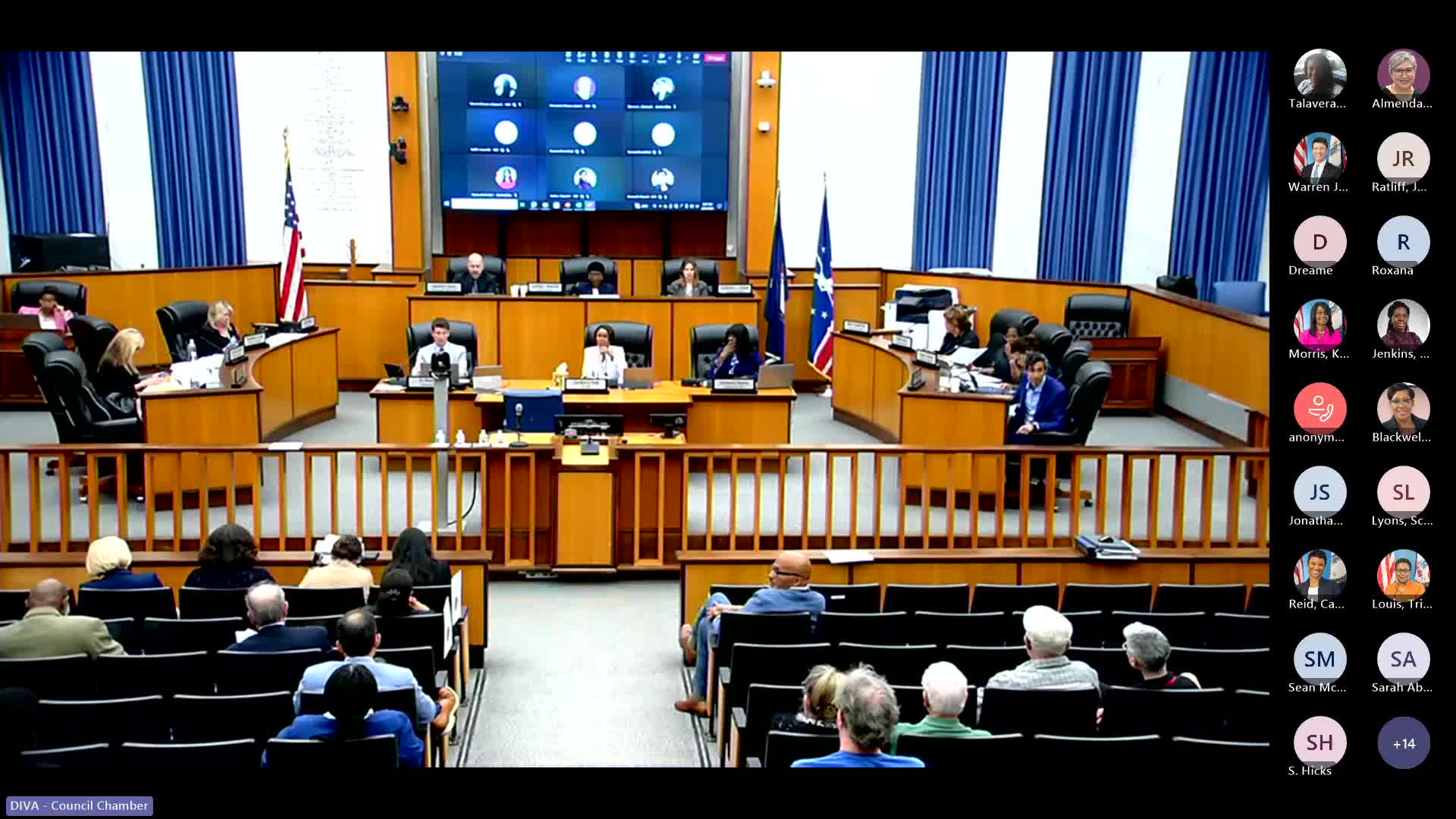Richmond public hearing draws wide comment on budget priorities including school funding, raises, housing and youth programs
Get AI-powered insights, summaries, and transcripts
Subscribe
Summary
The Richmond City Council held a special public hearing to gather feedback on the mayor’s proposed budget and a set of council amendments, drawing sustained comment from residents, nonprofit leaders and city staff about school funding, employee raises, housing assistance and youth programs.
The Richmond City Council held a special public hearing to gather feedback on the mayor’s proposed budget and a set of council amendments, drawing sustained comment from residents, nonprofit leaders and city staff about school funding, employee raises, housing assistance and youth programs.
Speakers at the hearing urged council to restore or increase funding for Richmond Public Schools and for implementation of contractual pay increases; to boost the Family Crisis Fund and eviction-prevention resources; to fund two code-enforcement positions tied to a proposed rental-inspection program; to continue support and fair-housing funding for voucher holders; and to preserve pay and staffing for public safety and other city services.
The hearing brought people from across the city and city government to the microphone, including nonprofit directors, union leaders, parents and students. Thomas Fitzpatrick, executive director of Housing Opportunities Made Equal, said the agency’s two programs that had been cut in the introduced budget are linked and asked council to restore funding so the group can continue to serve voucher holders in Richmond: “I humbly ask you if you could continue to fund this program and allow us to continue to serve the City Of Richmond.”
Circuit Court Clerk Ed Jewett urged council to approve a salary supplement request for 41 deputy clerks, saying the clerk’s office receives no state funding and that local salaries lag neighboring jurisdictions: “We are not keeping up with the salaries of the other courts in Virginia and especially in our area,” he told council, citing recent staff departures.
Multiple speakers pressed council to increase the Family Crisis Fund from the proposed $500,000 and to add $1 million, and New Virginia Majority organizer Warren Campbell cited city eviction statistics: “Richmond is second in the nation in evictions,” he said, urging council to fund eviction diversion, right-to-counsel and related prevention efforts.
Teachers and union leaders including Anne Forrester, president of the Richmond Education Association, urged full funding to cover the final year of the school system’s first collective-bargained contracts and supported an audit of Richmond Public Schools’ finances. Several teachers said how council handles this budget will set precedent for the city and state.
Students, parents and leaders of the UBU 100 youth program at Martin Luther King Jr. Middle School made a sustained appeal for continued contract funding. Coach Michael Bailey and several young program participants described UBU as a life-skills and college-and-career readiness program and said it has changed school climate at the middle school; council members repeatedly acknowledged those speakers during final remarks.
City staff and department heads also spoke in support of the administration’s proposed 3.25 percent across-the-board increase for eligible employees and in favor of modest market adjustments for senior and leadership roles. Charles Todd, director of Information Technology, said leadership pay must stay competitive to retain senior staff. Several department directors described turnover and the difficulty of recruiting for critical roles if pay is not maintained.
On housing enforcement, multiple public commenters and council advocates supported budget language to add two full-time code-enforcement officers to implement a proposed residential rental-inspection program if an ordinance is adopted. Commenters framed the inspection program as a low-cost way to address mold, habitability and landlord accountability.
Contractor workers and union organizers also sought budget amendments to raise contractor pay and protect subcontracted workers; Priscilla Peebles, a city contractor, told council that a $20 hourly benchmark matters for families and organizing efforts.
Council response and next steps: Council closed the public hearing and directed the administration to return with the items and spreadsheets members requested. Councilmember Kimberly Robertson (first reference as Council member Robertson) thanked the UBU students and parents and said she would support a 3.25 percent increase for city employees: “I am going to support all of our city employees getting 3.25 rates,” she said. The council discussed scheduling a follow-up work session on Monday to review administration responses, a special meeting to introduce budget papers on the 5th, and a vote at the council meeting on the 12th.
Administrative/procedural action recorded during the hearing: council approved one procedural motion to allow a council member to participate electronically under council rules (see Actions). No votes on budget amendments were taken at the public hearing.
The hearing is the latest step in the council’s budget deliberations; members said they will continue to request additional detail from the administration on positions, reclassifications and revenue assumptions before votes are scheduled.
